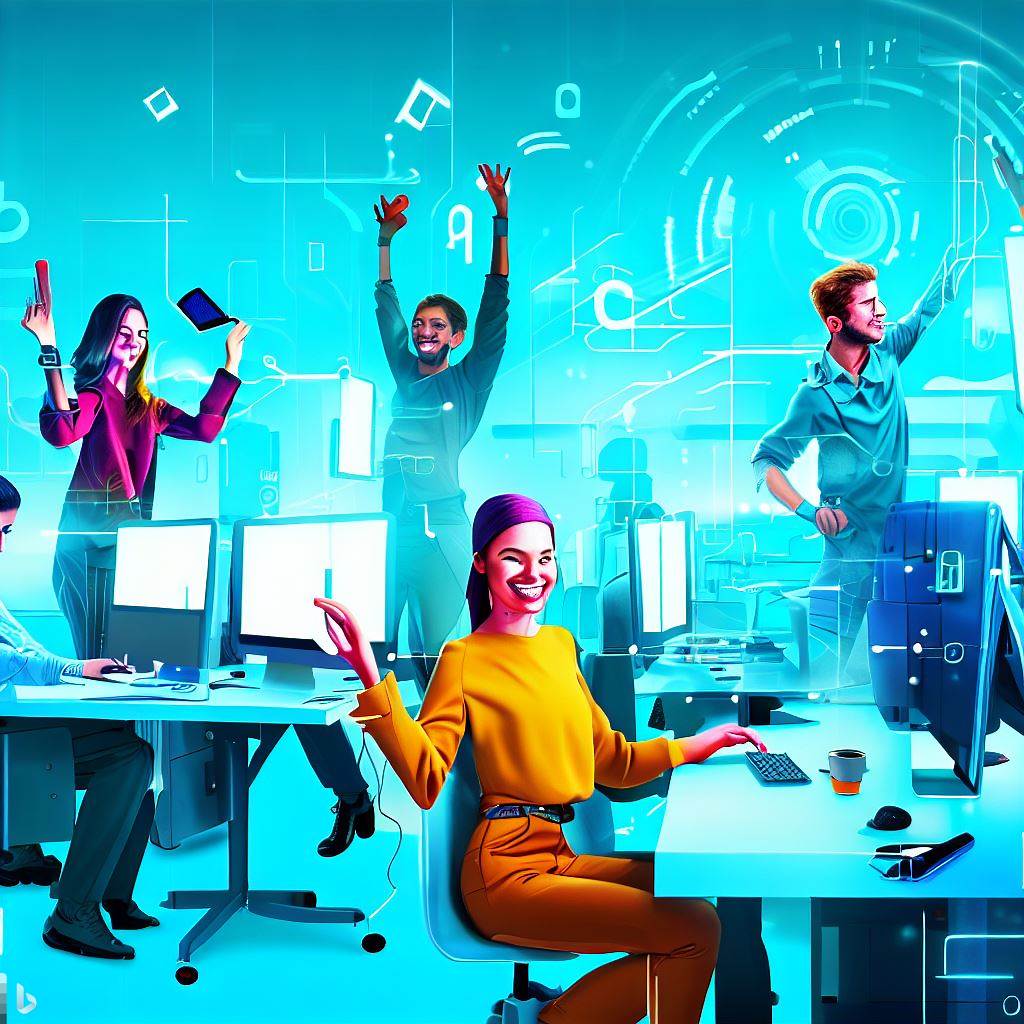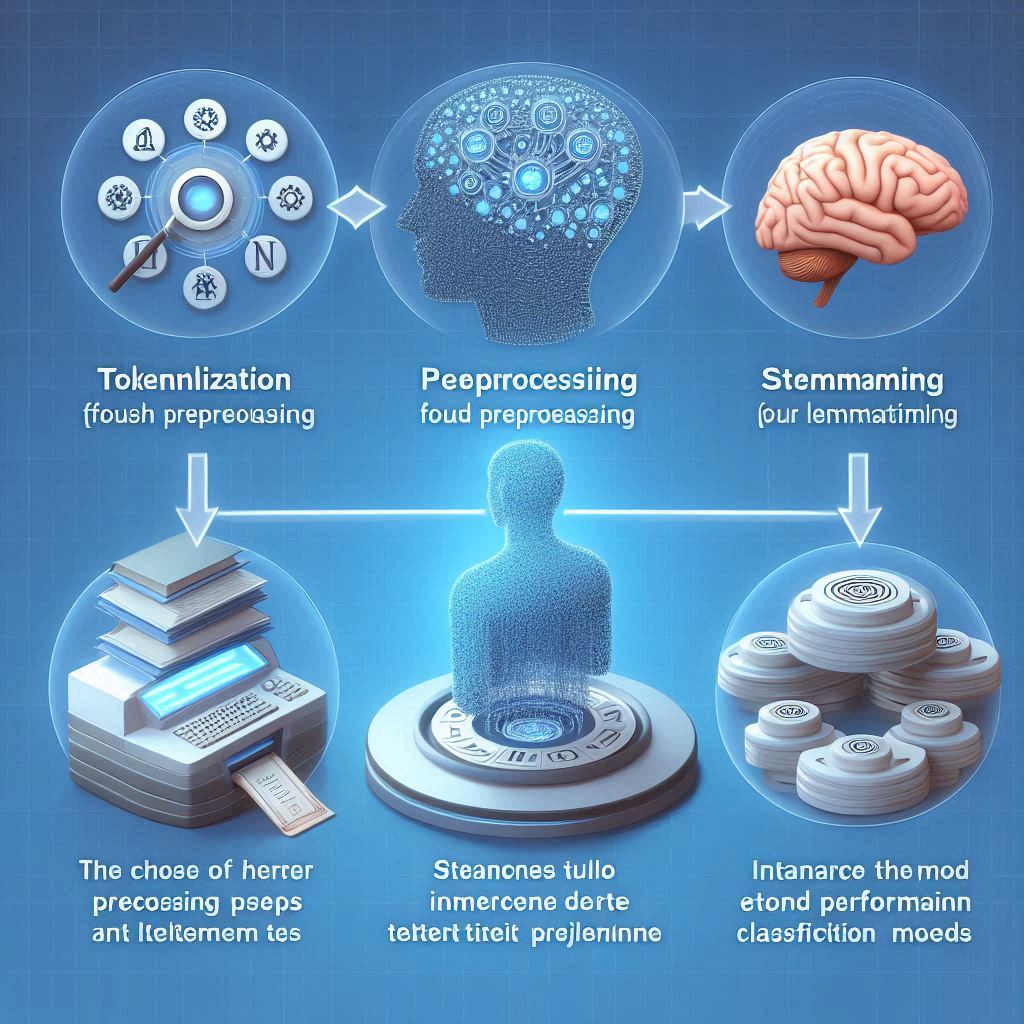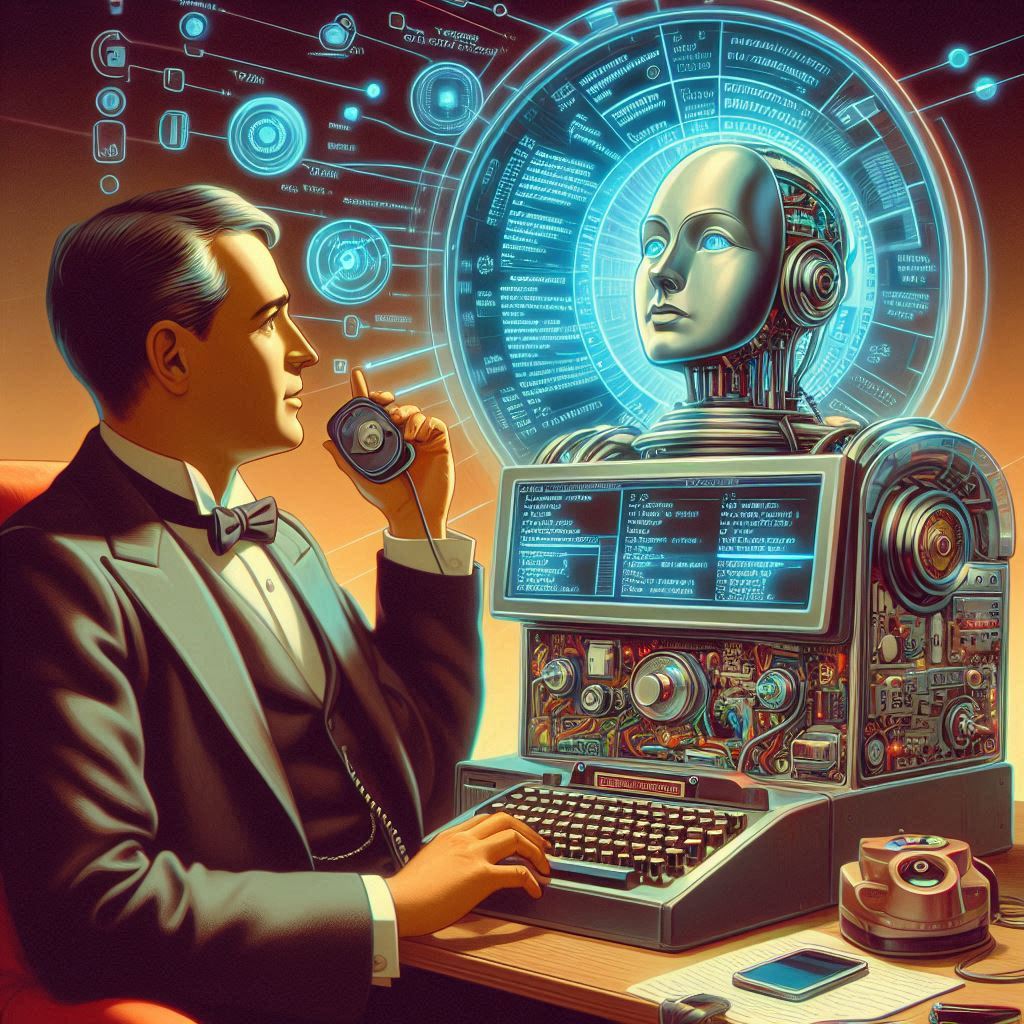Understanding AI-powered Content Generation: An Introduction
In the digital age, we are witnessing an unprecedented surge in artificial intelligence (AI) applications. One such application is AI-powered content generation, a technology that is revolutionizing the way we create, curate, and share information. Leveraging natural language processing (NLP), these AI systems can generate human-like text, enabling them to write articles, craft emails, and even pen novels.
The power of AI content generation lies in its ability to analyze vast amounts of data, identify patterns, and generate unique, engaging content. This technology is not just about replacing human writers but providing them with powerful tools to enhance their creativity and productivity. With AI, content generation becomes faster, efficient, and scalable.
The Rise of Chatbots: A Brief Overview
Chatbots, AI-driven software designed to interact with humans in their natural languages, are becoming increasingly popular in various industries. These interactions can occur on websites, mobile apps, and even through social media platforms.
Chatbots can simulate human conversation and understand complex requests, making them an invaluable tool for businesses. They can handle customer inquiries, schedule appointments, or provide product recommendations, all without human intervention. In essence, chatbots serve as virtual assistants, enhancing customer service and freeing up human resources for more complex tasks.
GPT-3 and ChatGPT: Revolutionizing AI Conversations
OpenAI’s GPT-3 and ChatGPT are significant advancements in the realm of AI conversations. GPT-3, the third iteration of the Generative Pretrained Transformer series, utilizes machine learning to produce human-like text. It’s impressively adept at understanding context, making it a powerful tool for content generation.
ChatGPT, built upon GPT-3, is a specific application designed for generating conversational responses. It uses a technique known as unsupervised learning, where the model is trained on a wide range of internet text. However, ChatGPT doesn’t know specifics about which documents were in its training set and doesn’t have the ability to access or retrieve personal data unless explicitly programmed to do so.
The Power of ChatGPT in Content Generation: Key Benefits
ChatGPT brings several benefits to the table. For one, it can generate high-quality content at scale, a boon for businesses needing to produce large volumes of text. It’s also highly customizable, able to adapt its tone, style, and content to suit specific needs.
Moreover, ChatGPT can generate creative and persuasive content, making it a powerful tool for marketing and advertising. It can also write technical reports, product descriptions, and company updates – tasks that can be time-consuming for human writers.
AI in Business Operations: A Game Changer
The integration of AI into business operations is a game-changer. AI can automate routine tasks, freeing up employees to focus on more strategic initiatives. It also enables businesses to analyze data more effectively, providing valuable insights that can drive decision-making.
AI can also improve customer service by providing instant responses to customer inquiries. Through machine learning, AI can even learn from these interactions, improving its performance over time. Furthermore, AI can help businesses expand their reach, connecting with customers across different platforms and time zones.
Transforming Customer Service with ChatGPT
ChatGPT has the potential to revolutionize customer service. By handling routine inquiries, it can free up customer service representatives to deal with more complex issues. It can also provide customers with instant responses, reducing wait times and improving customer satisfaction.
Moreover, ChatGPT can interact with customers in a personalized manner, improving the customer experience. It can remember past interactions, understand customer preferences, and provide tailored recommendations, all of which contribute to a more personalized and engaging customer experience.
Enhancing Marketing Strategies: The Role of ChatGPT
In the realm of marketing, ChatGPT can be a game-changer. It can generate engaging content for social media posts, email campaigns, and website copy, helping businesses connect with their audience in a more engaging and personalized manner.
ChatGPT can also generate creative product descriptions and persuasive sales pitches, enhancing a company’s marketing efforts. Furthermore, it can analyze marketing data, providing valuable insights that can inform strategy and decision-making.
Boosting Productivity with AI and ChatGPT
AI and ChatGPT can significantly enhance productivity. By automating routine tasks, they free up employees to focus on more strategic initiatives. They also reduce the risk of human error, enhancing the quality and accuracy of work.
Moreover, by providing instant responses to customer inquiries, they can improve customer service efficiency. They can also generate reports and analyses at a much faster rate than humans, providing businesses with timely and actionable insights.
Success Stories: Companies Excelling with ChatGPT
Several companies have successfully integrated ChatGPT into their operations. For example, Copy.ai, a platform that uses AI to generate marketing copy, uses ChatGPT to provide its users with creative and persuasive content.
Another success story is Kuki, a chatbot provider that uses ChatGPT to power its chatbots. With ChatGPT, Kuki can provide its clients with chatbots that can handle complex customer inquiries, improving customer service efficiency and satisfaction.
Navigating the AI Landscape: Safety and Ethical Concerns
While AI offers many benefits, it also raises safety and ethical concerns. For instance, there’s the risk of AI being used to generate misleading or harmful content. There are also concerns about privacy, as AI systems often require access to large amounts of data.
To address these concerns, it’s essential for businesses to implement robust data management policies. They should also ensure that their use of AI aligns with ethical guidelines and legal regulations. Moreover, they should be transparent about their use of AI, informing customers about how their data is being used and ensuring that they have the option to opt-out.
Gazing into the Future: ChatGPT and Business Operations
Looking ahead, it’s clear that ChatGPT and similar AI technologies will play an increasingly important role in business operations. As AI technologies continue to evolve, they will become more adept at understanding and generating human-like text, opening up new possibilities for content generation, customer service, and marketing.
However, as businesses harness the power of AI, they must also address the associated safety and ethical concerns. By doing so, they can ensure that their use of AI benefits not only their operations but also their customers and society as a whole.
The AI Revolution: Why Businesses Should Embrace It
The AI revolution is here, and businesses that fail to adapt risk being left behind. By integrating AI into their operations, businesses can improve their efficiency, enhance their customer service, and gain a competitive edge.
However, embracing AI is not just about adopting new technologies. It’s also about fostering a culture of innovation, encouraging employees to explore new ideas, and continually learning and adapting. By doing so, businesses can harness the full potential of AI, driving their success in the digital age.












